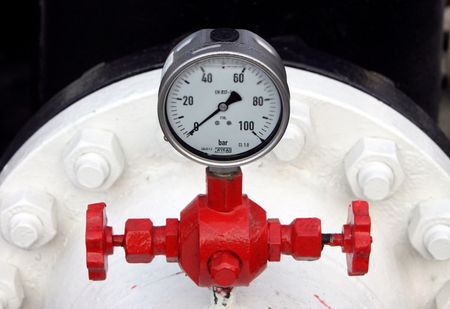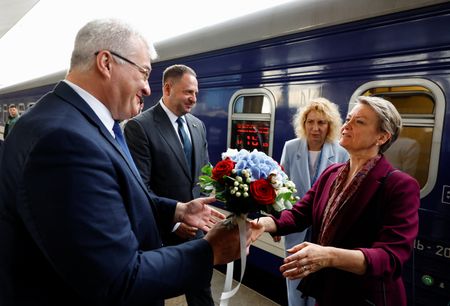PARIS (Reuters) -France reiterated its demands on Friday for the immediate, unconditional release of three French citizens held in Iran, declining to comment on a possible prisoner swap mentioned this week by the Iranian foreign minister.
Iran has been holding Cecile Kohler and her partner Jacques Paris since 2022 in conditions France has said are akin to torture. An 18-year-old French-German cyclist was also arrested in July.
In comments earlier this week, Iranian Foreign Minister Abbas Araqchi suggested the French nationals could be exchanged for Mahdieh Esfandiari, an Iranian student living in the French city of Lyon who was arrested this year over anti-Israel social media posts.
“A lot of work has been done regarding Ms Esfandiari’s case, and exchanging of her for French prisoners in Iran. We hope that good news will be announced on this matter soon,” Araqchi told Iranian state television.
Asked about Araqchi’s statement, outgoing French Foreign Minister Jean-Noel Barrot declined to comment.
“France demands the unconditional and immediate release of our citizens in Iran and I will make no comment on the remarks of the Iranian foreign minister,” Barrot told France Inter radio.
Kohler and Paris are accused of spying and seeking to stir up unrest, charges that France has called baseless.
Negotiations to secure their release have been ongoing for months, and the French government has become increasingly frustrated by the lack of progress or access to its citizens. It has filed a complaint at the World Court against Iran for violating the right to consular protection.
Efforts to reach a deal about the prisoners are likely to be complicated after France, Britain and Germany triggered the process to reimpose sanctions on Iran at the U.N. in August.
Iran’s Revolutionary Guards have detained dozens of foreign and dual nationals in recent years, often on espionage-related charges. Rights groups and Western countries accuse Tehran of using foreign detainees as bargaining chips, which it denies.
(Reporting by John Irish and Parisa Hafezi; Editing by Philippa Fletcher and Helen Popper)










